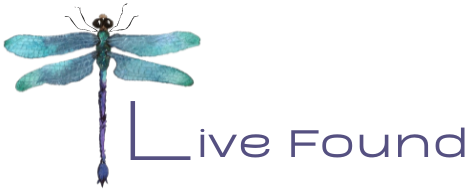Identity Recovery Groups
Permission to speak freely and find your heart again.
Trauma and attachment dysfunction can shape our souls in profound ways, often leading to isolation, self-protection, and unhealthy coping mechanisms. But you don’t have to navigate this path alone. We offer 100% virtual group sessions via Zoom, which give you instant community and healing connection.
Has life left you confused, empty and alone?
Identity Recovery: Tending to Your Soul
Reclaim Your Soul, Rediscover Your Joy
Join an intimate community of women healing from toxic relationships and attachment dysfunction, and step into God’s design and purpose for their lives.
Are you ready to heal from the wounds of attachment dysfunction and rediscover the vibrant, beautiful woman God created you to be? The Identity Recovery Group is a 16-week virtual group coaching program designed for women like you—courageous, motivated, and seeking a safe, faith-filled space to process pain, rebuild confidence, and embrace a future of joy and purpose.
I don’t know who I am anymore.
I feel numb and dumb.
And everyone around me is telling me different stories about what to do and what is “Godly” and “right.”
Nothing makes sense. And I can’t think of a single person I can talk to about this.
If you find yourself making these statements, you have lost sight of who you are and how to find meaning and purpose. Somewhere along the way, you have lost yourself to the drudgery of the journey and the cost of people-pleasing. You have also dealt with trauma and loss, and can’t get your head to stop reeling from the confusion and pain and grief.
Are you wondering how to heal or to feel normal again? Can you heal if there is ongoing harm and your spouse won’t stop or change? The answer is yes, but it will require good boundaries and evaluating what you’re dealing with, motivated by, and reaching for. Healing starts with you guarding your own soul, because that is the wellspring of your life. And, it culminates in wisely and deftly connecting with the people around you without letting their brokenness define you.
Why Choose this Identity Recovery Group?
- Intimate and Exclusive: Limited to 8 participants for personalized attention and deep connection, fostering a transformative group experience.
- Faith-Centered Healing: Our approach integrates biblical truths with evidence-based strategies to restore your heart and soul.
- Expert Guidance: Led by a LiveFound coach with expertise in helping women overcome the effects of attachment trauma, including emotional negligence and abuse, toxic relationships, and domestic violence and betrayal.
- Flexible and Accessible: Virtual sessions fit your schedule, with recordings available for review, plus a private community for support between sessions.
In our Identity Recovery Groups, we passionately help those who are hurting find their way through the chaos to find themselves, to feel again, and to connect (or re-connect) within deeper, more meaningful relationships. The entire point of your story is to learn how to live found, not wandering lost. And we’re here to help you find your authentic “you.”

- 16 Session Program
- 2-hour Facilitated Group Sessions
- Trauma & Recovery Informed
- Solution-focused Approach
- Journey from Naming to Training to Creating
- Weekly assignments
- Meet conveniently via Zoom from anywhere
- Max of 8 participants (min of 4)
- Private, closed group
- Digital Workbook included
- Potential for Creating Life-long Connections and Support
- Private online community for ongoing support
- Cost: $1600 for 32 Redemptive Coaching Hours
Sign Up
To begin, choose Your Start Date from the available options below.
Click on the drop-down menu under “Select Your Group” to see the next available dates and times.
And, we are also taking requests for other options in case none of these work for you. Need a Saturday morning group or would late Thursdays work better? Let us know what an ideal day and time would be for you and we’ll see what we can make happen!
What You'll Experience
In this transformative 16-week journey, you’ll join a small, supportive circle of up to 8 women, guided by a LiveFound coach trained in trauma-informed, faith-based coaching. Through weekly 2-hr Zoom sessions, you’ll:
- Share Your Story: Find healing in a safe, confidential community where your experiences are honored, and you’re never alone. Our trauma-sensitive approach, inspired by leading experts, ensures you feel seen, heard, and held.
- Confront the Trauma You’ve Experienced.
Unaddressed trauma can lead to isolation and maladaptive self-protection, manifesting as codependence or narcissism. - Redefine Self-strength vs. Self-protective.
Understand the difference between self-protective behaviors and healthy emotional self-defense. It looks like a battle between wisdom and foolishness, where authenticity and a strong sense of self are crucial for attachment and steadfastness. - Reframe Your Thoughts: Break free from the chains of negative patterns like self-doubt or shame with guided exercises rooted in Christian principles and cognitive restructuring.
- Reconnect with God: Deepen your spiritual strength through scripture-based reflections and practices that anchor your healing in faith, renewing your spirit with hope and purpose.
- Benefits of group therapy:
Small group therapy provides a dynamic environment where you can connect deeply without fear, obligation, or anger. It’s a space to feel heard, understood, and empowered. - Forge Life-long Bonds: Connect with sisters in healing through a private online community, where you’ll share encouragement, insights, and accountability—building friendships that uplift you long after the program ends.

